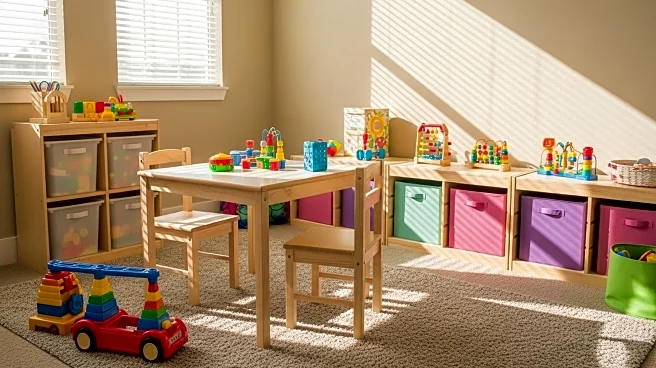What's Happening?
The US child care market is expected to grow at a compound annual growth rate (CAGR) of 6% over the next five years, driven by increased workforce participation among parents and government support. Factors contributing to this growth include rising awareness of early childhood development, urbanization, changing family structures, and technological integration in child care centers. The industry encompasses a variety of services such as daycare centers, preschools, in-home care providers, and after-school programs, all aimed at supporting children's social, emotional, and cognitive development while enabling parents to fulfill work commitments.
Why It's Important?
The growth of the child care market reflects broader societal shifts, including the rise of dual-income households and the need for reliable child care solutions. This expansion supports economic stability by enabling parents to participate in the workforce, thereby contributing to household income and overall economic growth. The increased demand for child care services also highlights the importance of early childhood education in shaping future generations, emphasizing the need for quality care and educational standards.
What's Next?
As the child care market continues to expand, stakeholders can expect further developments in government policies and funding programs aimed at supporting child care services. The integration of technology in child care centers may lead to innovative solutions that enhance educational outcomes and operational efficiency. Additionally, the competitive landscape may see increased collaboration and strategic partnerships among child care providers to meet growing demand.
Beyond the Headlines
The evolving child care market raises questions about accessibility and affordability, particularly for low-income families. Ensuring equitable access to quality child care services remains a critical challenge that policymakers must address. Furthermore, the cultural implications of changing family structures and urbanization may influence societal norms and expectations around child care and parenting.










